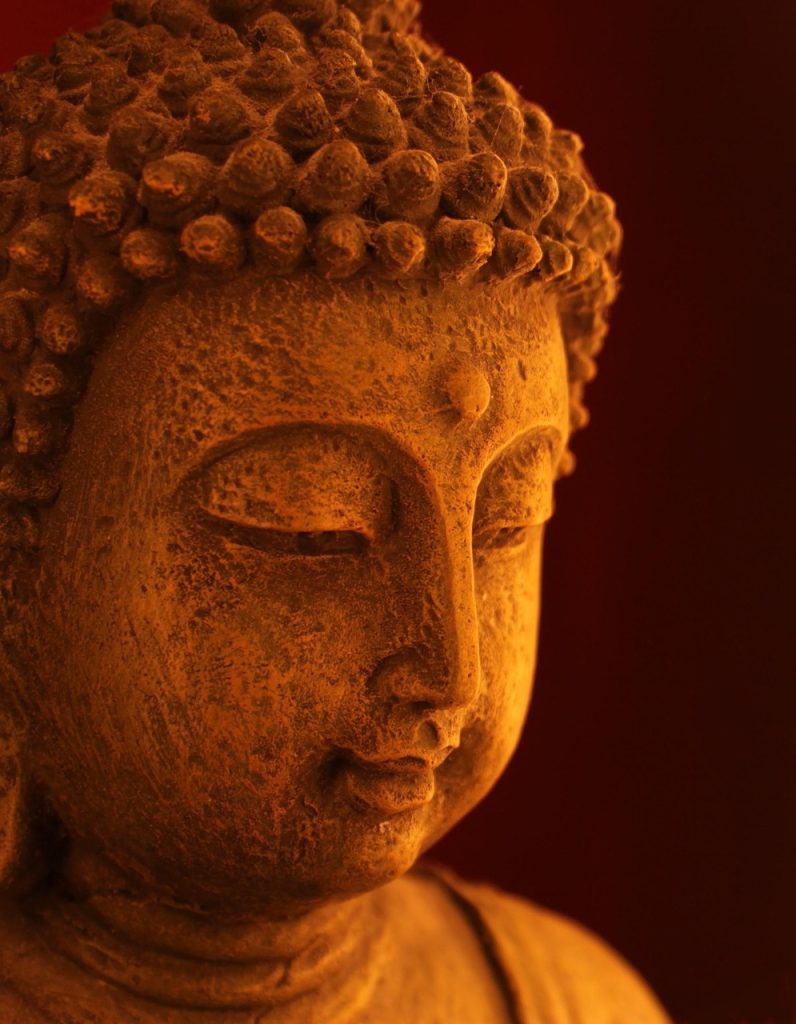
The Mahayana path in Buddhism involves generating the mind of enlightenment, bodhichitta, as our fundamental motivation. Maitreya Buddha defines it as, “For the sake of others, wishing to attain complete, perfect enlightenment.”
This motivation has two aspects: the wish that all beings be free from suffering, and the wish to attain enlightenment in order to bring that about. It is complete in that it encompasses all beings, and its aim is the full development of our potential.
To engage with the bodhichitta motivation on the path to enlightenment, we must actively cultivate positive states of mind — in particular the six perfections. These are the key practices for developing positive minds and for actually engaging the mind of enlightenment. Aspiration alone is not enough: we must also engage in the actions that bring about its fulfilment.
The six perfections are:
- Generosity: Actions of body, speech, and mind motivated by the virtuous thought to give.
- Ethical conduct: The virtuous intention to abandon harm to others, including the mental afflictions that give rise to harmful actions.
- Patience: A virtuous mind that can remain undisturbed by harm from others, voluntarily endure suffering, and remain steadfast in the Dharma.
- Joyous effort: Delight and enthusiasm for virtue — a sustained energy directed towards wholesome activity.
- Concentration: The practice of stable, single-pointed attention on a virtuous object, free from distraction and dullness.
- Wisdom: The ability to discern reality correctly, particularly through insight into the nature of phenomena.
The first three — generosity, ethics, and patience — are primarily directed outward, in our engagement with others. The last three — joyous effort, concentration, and wisdom — focus more on cultivating the inner qualities that support deep meditation and insight. When these six actions are motivated by bodhichitta, they become perfections.
In his dedication prayer in Prayers for the Path of Indivisible Great Bliss and Emptiness, Geshe Acharya Thubten Loden writes:
With unsurpassed generosity, ethics, patience,
Joyous effort, concentration and wisdom,
May I quickly and continuously generate
The bodhichitta of great love and compassion.
Bodhisattvas put their bodhichitta motivation into action through the practice of the six perfections. By doing so, they cultivate the capacity to benefit beings effectively, while strengthening their own motivation. And for us, even at the beginning, engaging in these practices helps deepen our heartfelt concern for others.
Seeing enlightenment more clearly
When we practise generosity, ethics and patience we make our love and compassion more genuine. We are actively benefiting others, not just wishing to. When we cultivate joyous effort, concentration and wisdom, our experience of the path deepens. We begin to see more clearly what enlightenment means and move closer to it — not through analysis alone, but through insight that is increasingly direct, spacious, and grounded in inner stillness.
In this way, practising the six perfections fuels our bodhichitta motivation. It strengthens our love and compassion and clarifies our aim. Eventually, bodhichitta becomes an instinctive way we view and engage with the world.
And as bodhichitta becomes more deeply integrated into our mind, it in turn strengthens our practice of the six perfections — creating a path of mutual reinforcement that brings us closer to enlightenment.
For further information about the six perfections see Path to Enlightenment in Tibetan Buddhism by Geshe Acharya Thubten Loden.
